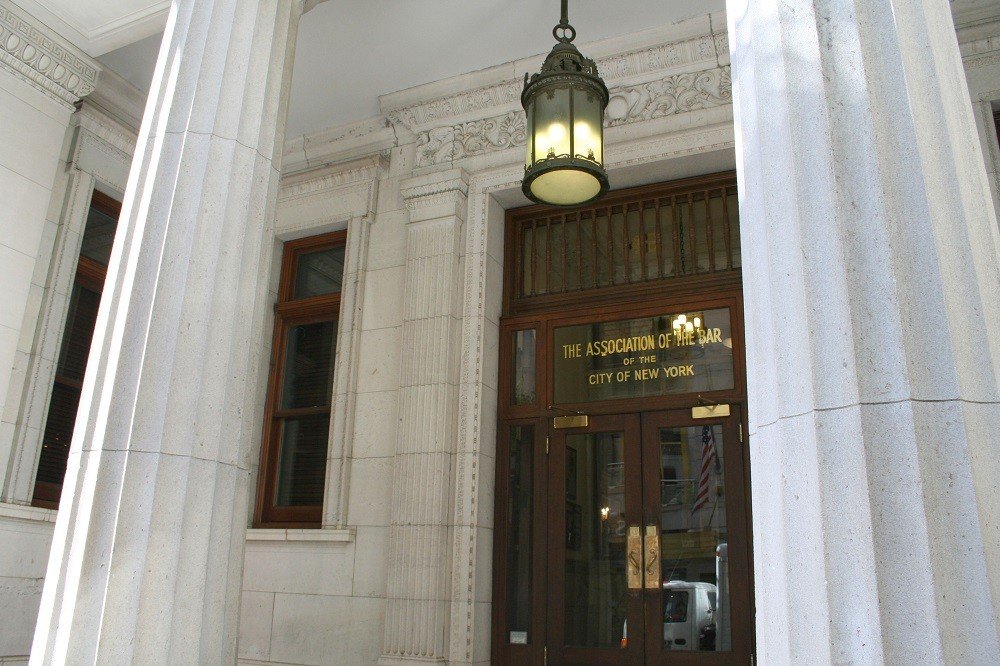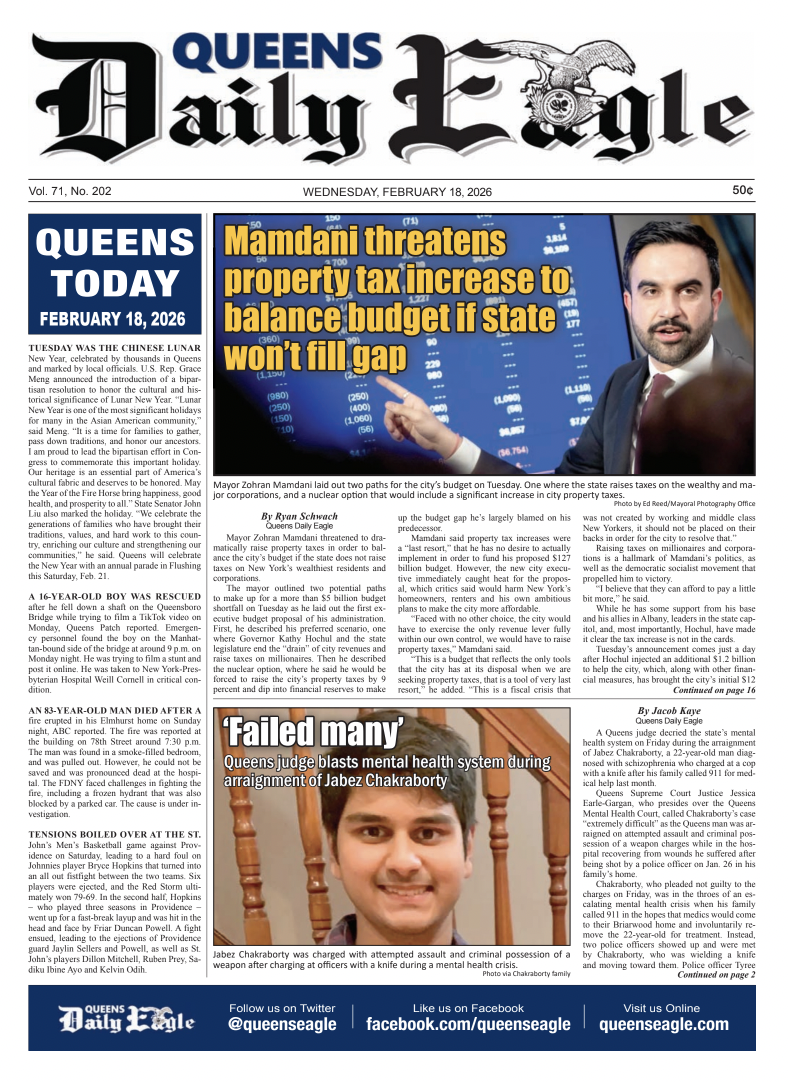All but three judicial candidates ‘approved’ by local attorneys
/The New York City Bar Association released its ratings of judicial candidates on Friday. Photo via NYCBA
By Jacob Kaye
Of the 20 people running to be elected judges in Queens this November, three were found to be “not approved” for the judicial positions they are running for by the New York City Bar Association.
As it does before every judicial election, the bar association on Friday released its rating of each candidate running for a spot on the bench in the city. In Queens, a vast majority of candidates, both Democrats and Republicans, received the NYCBA’s “approved” rating. However, a trio of judges, including one candidate running in perhaps the most closely-watched judicial race in Queens, were rated “not approved,” the lowest rating the bar association gives.
Sandra Munoz, a Civil Court judge running for a spot on the Supreme Court on the Democratic party line, Gary Muraca, an attorney running for the Supreme Court on the Republican party line, and Stephen Weiner, the Republican candidate running for Surrogate’s Court, were all not approved by the NYCBA.
All eight candidates running for one of the five open spots on the borough’s Civil Court were approved by the bar association. As was the only candidate running for the vacancy on the Civil Court in the borough’s 4th Municipal District. Seven of the nine candidates running for one of the seven vacancies in the Supreme Court were approved, as was Cassandra Johnson, the Democratic candidate running for Surrogate’s Court.
A “not approved” rating doesn’t automatically spell defeat for a judicial candidate, however the poor rating could have an impact on their chances at victory.
The ratings given out by bar associations are often one of the only measures of a candidate’s competency available to voters. Due to the nature of a judicial position, judicial candidates are barred from speaking about overtly political issues on the campaign trail, mostly out of fear that they may one day be asked to make a ruling on such issues in court. Given the fact that most judicial races are also often low-visibility races, voters often look to the ratings to inform their vote.
But what exactly goes into a candidate’s rating is mostly a secret.
Though the NYCBA puts each candidate through a multi-part review process, information about how each candidate responds to that process is confidential.
The NYCBA’s review process begins with its Judiciary Committee, which is comprised of 50 members, including three members from each of the city’s county bar associations.
The committee, which is tasked with determining whether a candidate “holds the necessary qualifications to become a judge, such as integrity, impartiality, intellectual ability, knowledge of the law, industriousness, and judicial demeanor and temperament,” first asks each candidate to complete a questionnaire. The document asks for information related to candidates legal experience, their educational background and employment history.
The committee also interviews judges, attorneys and others who have worked with the candidates in an effort to understand how they behave in a courtroom. Candidates who are already judges and are looking to be elected to a higher court are asked to send the committee their recent decisions and the contact information for a number of lawyers who have appeared before them.
A subcommittee then interviews each candidate and prepares a recommendation. The larger committee then also meets with the candidate and discusses with them the recommendation from the subcommittee.
Lastly, all the committee members then vote to give the candidate an “approved” or “not approved” rating.
“A determination of ‘not approved’ means that the candidate failed to affirmatively demonstrate that s/he possesses the requisite qualifications for the court for which s/he is a candidate,” the bar association said.
Candidates who do not participate in the review are also given a “not approved” rating.
The NYCBA review went well for most candidates running for Supreme Court in Queens.
Democratic candidates including Civil Court Supervising Judge Alan Schiff, Civil Court Judges Delsia Marshall, Andrea Ogle, John Katsanos and Acting Supreme Court Justices Lumarie Maldonado Cruz and Claudia Lanzetta were all approved.
Munoz was the only Democratic candidate in the Supreme Court field to be rated “not approved.”
Republican candidate Kathy Wu Parrino was approved for the position but her fellow Republican candidate, Muraca, was not.
Every candidate – Democrats and Republicans alike – running for Civil Court in Queens were approved by the NYCBA.
On the Democratic ticket will be attorneys Amish Doshi, Melissa B. DeBerry, Peter Lane, Glenda Hernandez and Sharifa Nasser-Cuellar. On the Republican side will be William Shanahan, Mary-Ann Maloney and Stephen Dachtera.
Elizabeth Newtown, the supervising attorney for the Legal Aid Society’s criminal defense practice, was approved by the bar association in her bid for the Civil Court’s vacancy in the 4th Municipal District.
Perhaps the race in which the ratings will play the biggest role is the race for the borough’s Surrogate’s Court, where a single judge rules over cases related to guardianships, estates and wills.
The court is often considered one of the most powerful in any given county, largely because of the massive amounts of money that are often up for question in the court.
The NYCBA on Friday gave the Democratic candidate, Supreme Court Justice Cassandra Johnson, an approved rating. Stephen Weiner, the Republican candidate, was not approved.
And while the ratings may have an effect on the race, a number of other major factors will be at play in the contest.
To start, Democratic judicial candidates always have an advantage over Republican candidates in Queens, where Democratic voters outnumber Republicans seven to one.
There’s also cash. Johnson, who faces a rare competitive primary, has raised more than any other judicial candidate in Queens this cycle by far. According to the state’s campaign finance board, Johnson had $77,000 in her campaign coffers heading into the final weeks of the campaign. Weiner, who raised $11,000 since announcing his candidacy earlier this year, had around $6,000 left to spend on his campaign.




